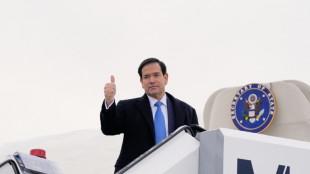

US Treasury signals G7 deal excluding US firms from some taxes
US Treasury Secretary Scott Bessent signaled Thursday that a deal is forthcoming among G7 nations allowing US firms to be excluded from certain taxes imposed by other countries.
"After months of productive dialogue with other countries on the OECD Global Tax Deal, we will announce a joint understanding among G7 countries that defends American interests," he said in a series of social media posts.
Nearly 140 countries struck a deal in 2021 to tax multinational companies, an agreement negotiated under the auspices of the Organisation for Economic Co-operation and Development (OECD).
This deal has two "pillars," the second of which sets a minimum global tax rate of 15 percent.
"OECD Pillar 2 taxes will not apply to US companies," he wrote, adding that officials will work to implement the agreement across the OECD-G20 Inclusive Framework in the coming months.
US President Donald Trump has pushed back on the global tax agreement, with Bessent on Thursday pointing to advances on that front.
"Based on this progress and understanding, I have asked the Senate and House to remove the Section 899 protective measure from consideration in the One, Big, Beautiful Bill," Bessent added, referring to a bill currently before US lawmakers that would slash social program spending for tax cuts.
Section 899 has been dubbed a "revenge tax," allowing the government to impose levies on firms with foreign owners and on investors from countries deemed to impose unfair taxes on US businesses.
The clause sparked concern that it would inhibit foreign companies from investing in the United States.
G.Phillips--CT



